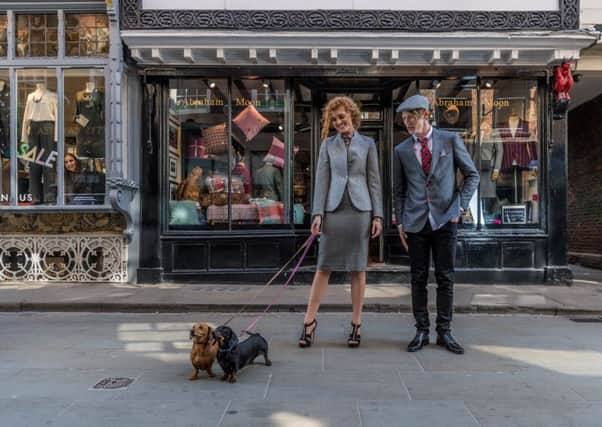Stephanie Smith: Wear wool with pride - it’s part of the fabric of Yorkshire


Hmm. Too soon? Ill-judged? Or simply an almost affectionate lament for an old adversary while continuing a broadly successful campaign? Most of us would not dream of wearing fur, but wool? Well, it’s wool, a natural fibre, soft, warm, versatile, durable and used by millions, from avant-garde designers to high street suppliers and at-home knitters, to create everyday clothing and furnishings that are both beautiful and necessary. Wool is part of the fabric of Britain, and especially of Yorkshire, where so much wool production is based.
Unlike fur, wool does not require slaughter. Nonetheless, PETA says wool production is cruel and has released “exposés”. So, last week, Boohoo.com announced a ban on wool. Typing “wool” into its online search box confirmed to me that it uses very little real wool, but even so, banned. Again, I first learned of this via an email from PETA, headed VICTORY, suggesting that “no jumper or scarf is worth kicking, punching and killing gentle sheep”.
Advertisement
Hide AdAdvertisement
Hide AdAgreed. But is there any reason to believe that systematic cruelty of sheep is the norm? I’ve seen sheep sheared. I’ve interviewed designers who actually started making clothes to use unwanted by-product fleeces. I’ve been round mills and seen the magic that goes into weaving cloth. Wool is part of our heritage, our economy, our creativity and our expertise. Yorkshire is home to the UK’s finest woollen mills, including Abraham Moon of Guiseley, where more than 250 employees make cloth for international brands and high street retailers. I’ve asked and Moons confirms its producers adhere to a strict animal welfare code.
Now Boohoo has backtracked and says it will continue to use wool, but damage has been done. It caters for young, trend-led shoppers. How many now wonder if wool is something they should avoid?
PETA is only doing its job. If it causes consumers and suppliers to consider how animals (and human beings) are treated, good. But British retailers have a responsibility to customers and to British industry, no matter where their clothes are made. They reflect and showcase not just fashion, but society’s changing needs, aspirations and moods. They should use their own minds and insight before making announcements that make them look very much like bandwagon-jumping sheep.